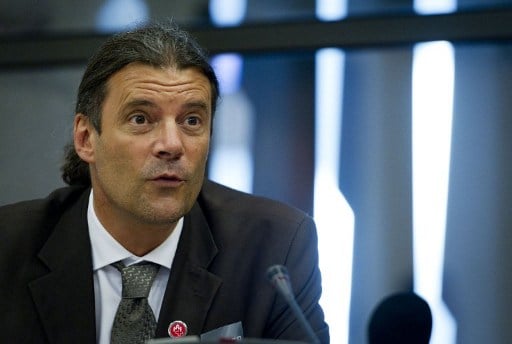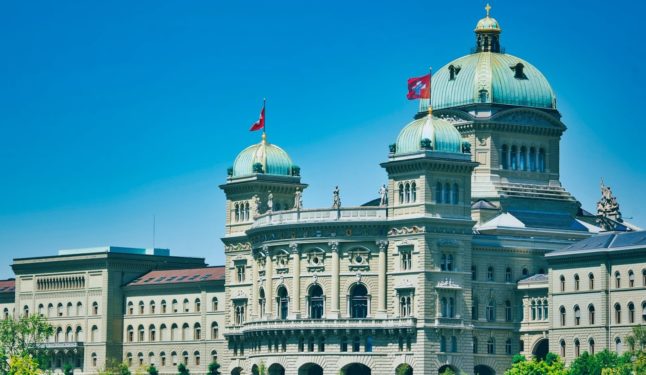Détail #Elections2017 #Valais2017 #VS2017 #VS17 https://t.co/HHK9wKXkkw pic.twitter.com/4sdYPd4a5U
— Statistiques_Valais (@StatistikValais) March 19, 2017
POLITICS
Valais voters oust right-wing politician in ‘defeat for populism’
Oskar Freysinger, the vice-president of the Swiss People’s Party (SVP), who was elected to the Valais government four years ago on a wave of support, lost his seat on Sunday.
Published: 20 March 2017 11:02 CET

Oskar Freysinger. Photo: Valerie Kupers/ANP/AFP
The re-election of Valais’ security minister was already in doubt after he placed sixth in the first round of voting three weeks ago, with only five seats up for grabs.
On Sunday Freysinger’s downfall was confirmed in the second round when he once again placed sixth. In losing his seat he becomes the first sitting minister in the modern history of Valais to stand for re-election and not succeed, according to news agencies.
His seat was taken by Liberal-Radical Frédéric Favre, standing for the first time and a political unknown until just a few months ago.
It’s a sharp fall from grace for Freysinger, a former federal MP who was voted into the Valais government in 2013 with the most support of any candidate.
Back then he received 56,913 votes, or 43.5 percent of the total, compared with just 42,520 votes this time around.
Known for his ultra-conservative views particularly on Muslim immigration, the outspoken politician has been a controversial figure in Swiss politics for many years, both during his time as a federal MP and in his four years as a minister in the Valais.
He was a leading exponent of the successful 2009 campaign to ban minarets and a failed 2016 SVP initiative calling for the expulsion of foreign criminals, which used posters that critics considered racist.
In 2011 he spoke alongside Dutch far right politician Geert Wilders in the Hague after a planned event in the Valais was banned by local authorities.
Freysinger also sits on the Ergerkingen Committee which has campaigned for a federal ban on the Islamic face veil.
Just after he was elected to the Valais government in 2013 he was criticized for displaying a flag considered a neo-Nazi symbol in his home during a television interview.
Freysinger did not speak to the media following Sunday’s defeat, but SVP MP Franz Ruppen told the press he had spoken to the defeated minister on the phone and said he was “disappointed”.
“I think his political career in Valais is finished,” said Ruppen.
Christian-Democrat Christophe Darbellay, himself re-elected in third place but whose campaign was dogged by scandal after he was forced to admit he had fathered a child with a woman other than his wife, said Freysinger’s fall was “a defeat for populism and aggression”.
Socialist Christian Levrat also hailed Freysinger’s defeat.
“After having led a career based on provocation, the former minister can only blame himself,” he told the press.
Writing an editorial in the Tages-Anzeiger, journalist Daniel Foppa said Freysinger’s defeat ends a “bizarre political career” in which the controversial politician could seemingly do and say anything and nevertheless still be elected, first to the federal parliament and then to the Valais government.
“On a regular basis Freysinger was a guest of right-wing extremists and conspiracy theorists all over Europe,” writes Foppa, adding that he was also “ineffectual” as a politician.
“If you take all this into account it is astonishing that Freysinger’s career came to an end only today,” he said, concluding that his defeat is “a soothing counterpoint in times when populism is on the rise”.
Christian-Democrat Roberto Schmidt was elected in first place, with over 59,000 votes.
His colleagues Jacques Melly and Darbellay placed second and third, with Socialist Esther Waeber-Kalbermatten and Favre completing the new Valais government in fourth and fifth place.
Url copied to clipboard!


 Please whitelist us to continue reading.
Please whitelist us to continue reading.
Member comments